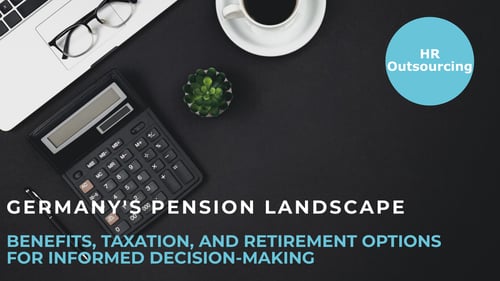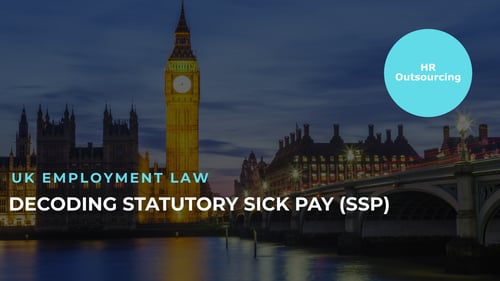Visa Sponsorship Guidelines for US Companies in the EU Market
Hiring employees abroad can expand your business into the increasingly growing global market, especially since there is a War on Talent. Therefore, it will help your business grow.
But how do you hire a foreign employee? Learn more about VISA sponsorship in our blog.
Understanding Visa Requirements for EU Market Entry
Schengen member countries have visa policies that differ from one country to another. Therefore, employment visa requirements, the application process, and criteria depend on the country where you want to hire your employees. If you already have employees in France, it doesn't mean that the visa procedures will be the same in Germany.
The employment visa programs in Europe have been set to cover the labor needs of the respective countries. It helps them fill job shortages and gives both employers and employees more opportunities.
Who needs a visa to work in Europe?
Citizens from the European Union can be hired in all EU countries without specific requirements. However, if you are hiring an employee who doesn't hold an EU passport and will work in an EU country, you will have to handle their work visa.
Visas are required for all third-country nationals, and processes are different in some countries. For example, Switzerland has agreements with the EU, so the visa process is not the same as for other countries. However, if you have a visa for a country and you move to another country as a non-EU citizen, you need to apply for a visa in that specific country.
What are the requirements for a work visa in Europe?
Even though visa requirements are different in each European country, there are some standard requirements for everyone. You need:
- a valid passport,
- travel reservations,
- travel and medical insurance,
- proof of accommodation,
- an employment contract,
- academic or professional qualifications.
Some countries might require employees to prove they can speak the language of the host nation. However, depending on the employee's nationality, there might be some additional requirements, like a minimum salary.
EU Blue Card
Besides the work visa, the Blue Card is an option to employ talent from abroad. The EU Blue Card is a residence permit that allows highly qualified third-country nationals to live and work in the European Union. The EU Blue Card applies in 25 out of 27 EU countries, except for Denmark and Ireland.
The highly-qualified workers must provide proof of their professional qualification, such as a university degree, a binding job offer with a high salary compared to the EU average of the country where the job is, or an employment contract.
Requirements for EU Blue Card
The EU Blue Card is issued for the duration of the contract with a maximum of 4 years. After that, it can be extended if there is still a work contract and the salary threshold is met.
It can be submitted by either employer or employee after fulfiling the following criteria:
- Work: There must be a valid work contract in place with at least one year
offer. - Higher professional qualification proof: Usually, a university degree is
sufficient, but some EU countries may also accept at least five years of
relevant professional experience. - You must work as a paid employee: Self-employed individuals or
entrepreneurs are not eligible to apply for the EU Blue Card. - Salary: The annual gross salary must be at least one and a half times the
average national salary. The only exception is when the lower salary
threshold applies. - Travel documents: Besides presenting necessary travel documents,
employees must have the necessary travel documents. - Legal requirements: Employees must prove that they fulfil the legal
requirements to practice their profession.
To get an idea of how different the procedures can be, here is an overview of visa sponsorship for employment in some EU countries.

Visa Sponsorship for Hiring in Italy
If you are planning to hire a non-EU citizen in Italy, employees must obtain a visa and authorization for employed work before entering the country. Also, a residence permit within eight days of entering Italy.
Employers have to apply for authorization to work at the One-Stop Shops for Immigration in the Prefettura of the province where the job will take place. Documents that are necessary for this application are:
- Future housing,
- The proposed residence contract,
- The financial cover of the return journey,
- Every possible variation of future employment.
The permit is connected to the job contract. Time-limited contracts are limited to one year, and for unlimited contracts, the residence permits will be issued for two years. Once the authorization to work is realized, the embassy or consulate will produce a visa.

Visa Sponsorship for Hiring in Spain
For hiring employees in Spain, your workers must obtain a work and residence visa and permit. Work permits are only granted in cases of job shortages. Employers first must obtain a work authorization that is granted by the Provincial Aliens Affairs Office. Once the work permit has been authorized, the employee should apply for a work and residence visa at the Embassy or Consulate.
Documents that are required are a medical certificate and proof there is no criminal record in Spain or in the countries of the previous residence. The initial work permit is issued for one year, but it is renewable.

Visa Sponsorship for Hiring in France
Non-EU nationals who wish to work in France will have to obtain a work permit by having a work contract approved by the competent French labour department and then obtain a long-stay visa.
The employer in France has to apply for employment authorization to the competent DIRECCTE, and they will verify professional qualifications and experience, whether the proposed job is suitable, and that the proposed salary is at least 1,521.22 EUR. DIRECCTE will also check compliance with labour regulations and conditions, as well as if there is a shortage of employees for the role.
![]()
Visa Sponsorship for Hiring in Germany
A residence permit and visa are a must for non-EU employees. Employees must provide a valid passport, health insurance, proof of accommodation, and proof of financial resources sufficient to support themselves.

Visa Sponsorship for Hiring in the Netherlands
Non-EU employees coming to work in the Netherlands can apply for a permit for residence and work. Employers can choose to become a recognized sponsor, but this is not obligatory. Employees must have official foreign documents legalized and translated into Dutch, English, French or German.

Visa Sponsorship for Hiring in Belgium
To be able to hire non-EU employees, employers in Belgium must prove that there are no qualified workers in the labour market within a reasonable period of time. If that is possible, the employee will be issued visa D after the employer submits the following:
- The completed and signed application form,
- Documentary evidence related to the employment,
- A copy of the identity document,
- A copy of the job contract,
- A copy of an international passport of the employee,
- Proof that the employee has sufficient funds for subsistence,
- Evidence that the employee doesn't have a crime conviction,
- A standard medical certificate and proof of health insurance,
- Proof of payment of the administrative fee.

Visa Sponsorship for Hiring in Portugal
For hiring employees in Portugal, employees must have a contract or the promise of a contract so they can apply for a residence visa at the embassy or consulate. Besides that, the employee needs to have the necessary qualifications, competencies, and expertise for the job. Return tickets, travel insurance, and proof that the employee has sufficient means of subsistence are also mandatory.
![]()
Visa Sponsorship for Hiring in Sweden
For hiring non-EU nationals in Sweden, employees need to have a work and residence permit and a valid passport. When applying for a work permit, employees need to have a written job offer from an employer or a client based in Sweden and proof that they earn enough money to support themselves.
Employers must fulfil that the job has been advertised in Sweden and in the EU for ten days, and the terms of the contract have to be equal to or better than those provided under a Swedish collective agreement. The relevant trade union must have been given the opportunity to express an opinion on the terms and conditions of the offer.
Conclusion
If you would rather skip all of this and have someone reliable to handle the whole HR process for you from abroad – you are in the right place. EuroDev can help you by setting up the entity, hiring talent, and handling all the tricky paperwork instead of you.
Once you have your HR department in Europe, we can also take care of payrolling for you and your day-to-day tasks so that you can focus on your core business and development. Boutique HR Outsourcing solutions are what you can expect from us, whether in HR Consulting, PEO & EOR, or Recruitment services.
Disclaimer: While we strive to provide accurate and timely information, please note that HR policies and regulations can change frequently. It is recommended that you seek guidance from our HR consultants to ensure that the data presented here is current and accurate.
Category
Related articles
-

Essential Guide to French Employment Regulations
22 March 2024comprehensive guide on French employment regulations for companies expanding to France, covering...
Read more -

Germany's Pension Landscape: Navigating Benefits and Taxation for Informed Decision-Making
5 February 2024Dive into the intricacies of the German pension system: benefits, calculations, retirement options,...
Read more -

Decoding Statutory Sick Pay (SSP) in the UK
29 January 2024Navigate the complexities of Statutory Sick Pay in the UK with our guide on rights, regulations,...
Read more

